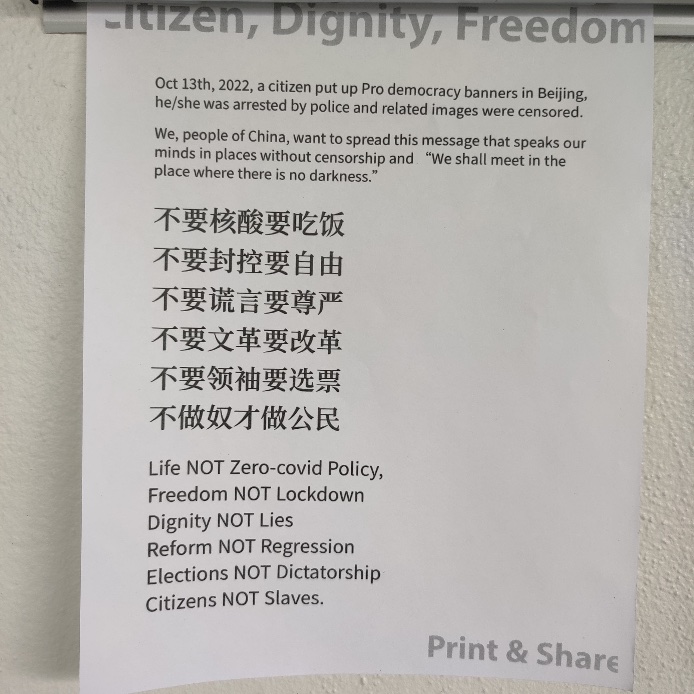This post grew out of a comment I was making yesterday to a previous post about a wall at INALCO (Institut National des Langues et Civilisations Orientales [National Institute for Oriental Languages and Civilizations]) (established 1669) in Paris that listed the many languages taught at that venerable institution.
As my eyes surveyed the mass of names on the wall, one thing struck me powerfully: the large number of different Arabic languages. This raised an interesting question: common "wisdom" is that there is only one Arabic language, viz., Modern Standard Arabic [MSA], so how come there are so many different Arabic languages taught at INALCO?
Since the Arab vernaculars have been one of our favorite foci here at Language Log (see "Selected readings" below), I was interested to see how many different varieties of Arabic are represented on this wall:
Judéo-Arabe, Moroccan Arabic, Algerian Arabic, Libyan Arabic (but that is MSA), Yemeni Arabic (also MSA, though it is generally considered to be a very conservative dialect cluster), Lebanese Arabic, Palestinian Arabic, Egyptian Arabic, Arabe Littéral (which I take to signify written / literary MSA) in contrast to dialectal Arabic (though I'm not sure how it differs from regular MSA; perhaps it is hyper-conservative to a degree that it it not really "sayable", i.e., "writable but not sayable", cf. "Sayable but not writable" [9/12/13]; i.e., MWA [Modern Written Arabic]?).
I do not include Maltese because of the Romance superstrata, nor do I include Sorabe because that only refers to the script used to write the Austronesian language known as Malagasy, much as the Perso-Arabic script is used to write Sinitic Hui (Muslim) Mandarin.
Read the rest of this entry »
